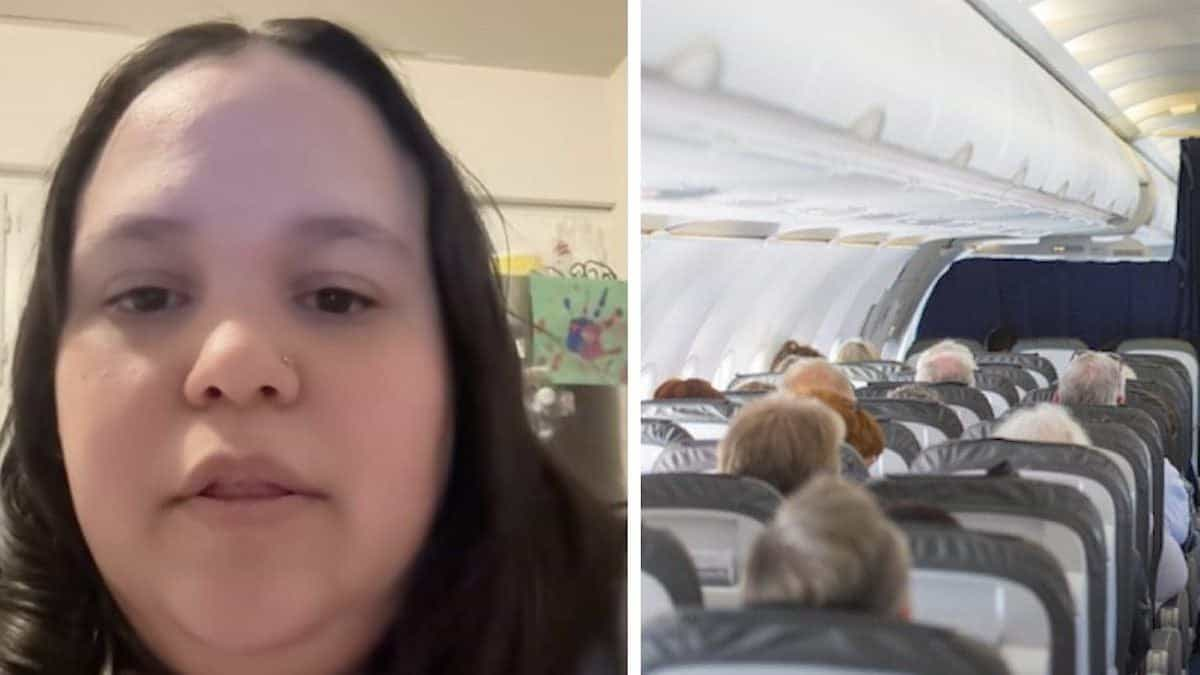Show table of content Hide table of content
A distressing incident involving United Airlines has sparked outrage across social media after a mother was reportedly instructed to turn off her disabled son’s ventilator before takeoff. The shocking confrontation, which occurred on March 8, 2025, has raised serious questions about airline protocols for passengers with medical needs and highlighted the challenges faced by families traveling with medically complex children.
Medical necessity versus airline protocols
Melissa Sotomayor and her two-year-old son were preparing for their flight from Tampa International Airport to Newark, New Jersey, when airline staff approached with an alarming request. Despite having obtained necessary authorizations for traveling with medical equipment, Sotomayor was instructed to disconnect her son’s ventilator and oxygen tank prior to takeoff.
“They told me I needed to turn off both the ventilator and oxygen because they needed to be secured for takeoff,” Sotomayor explained in a TikTok video that has since gone viral. “I had to explain that these devices literally keep my son alive.”
The confrontation escalated when the aircraft’s captain approached Sotomayor, questioning whether her son should be flying at all. “The captain came back and said, ‘I don’t think your son should fly. It’s dangerous for him. Look at him,'” she recounted. Sotomayor promptly responded that her son was medically cleared for air travel.
This troubling incident highlights the tension between safety protocols and accommodating passengers with medical necessities. Airlines must balance strict regulations with compassionate service, especially when dealing with vulnerable passengers. Transportation accessibility issues extend beyond airlines into other services like rideshare companies that sometimes struggle with accommodating special needs passengers.
Family’s ordeal and social media response
After an hour-long delay filled with tense exchanges, the flight eventually departed with both mother and son aboard. Sotomayor, still shaken by the experience, turned to social media to share her story and seek witnesses who might have observed the interaction.
“No parent should ever be told to remove their child from the ventilator for takeoff!” Sotomayor wrote in her TikTok post. She also mentioned that a kind passenger in row 9 assisted by holding her younger child while she attended to her son with medical needs.
The video quickly gained traction, with thousands of supportive comments from viewers expressing outrage at the airline’s handling of the situation. Many commenters shared their own experiences with medical accommodations during air travel, revealing a pattern of inconsistent policies across the industry.
@missysoto0 Please if you were on flight number UA1349 on Saturday, March 8, 2025, with a departure time of 8:09am, please reach out to me if you heard and/or saw the way we were treated. I want to pursue this since the flight attendants have an inaccurate report of what happened. No parent should ever be told to remove their child from the vent for takeoff! The kind woman in row 9 even held my youngest while I got my oldest situated. I won’t release any info about you publicly. I want corporate to know what really happened and not what the FAs are telling them to cover their butts #NoahScottStrong #TeamSpicySweetPotato #fyp #medicalmomsoftiktok #medicallycomplex #warriors #tracheostomy #trach #trachbabies ♬ original sound – Missy Soto
Parents of children with medical complexities face unique challenges when traveling. These families must navigate a system that often fails to understand their specific needs. Education about various disabilities could prevent such incidents, as learning about specialized fields like medical accommodations can create more inclusive environments.
Airline’s response and policy questions
Following the incident and subsequent social media attention, United Airlines issued a statement to CNN addressing Sotomayor’s experience. “We have reached out to the customer to address her concerns and have apologized for any frustration she may have experienced,” the company stated.
Sotomayor dismissed this response as “hypocritical,” suggesting it failed to acknowledge the seriousness of asking a mother to disconnect life-sustaining equipment from her child. The incident raises important questions about airline staff training regarding passengers with medical needs.
What makes this case particularly perplexing is that Sotomayor had successfully flown with her son and his medical equipment previously without incident. She had also secured all necessary medical clearances and authorizations before booking her ticket, following standard procedures for traveling with medical devices.
Travel On this tourist-favorite island, hiking trails are becoming paid for a good reason.
Airlines maintain specific policies for passengers requiring medical equipment during flights. These protocols typically allow for the use of FAA-approved medical devices throughout the flight, including during takeoff and landing. The confusion in this case points to possible gaps in staff training or communication about these established policies.
Broader implications for travel accessibility
This incident illustrates the broader challenges faced by travelers with disabilities or medical conditions. Despite laws like the Air Carrier Access Act, which prohibits discrimination against passengers with disabilities, families frequently encounter barriers when flying.
Disability advocates have pointed out that inconsistent enforcement of accommodation policies creates unnecessary stress for passengers who already face significant challenges when traveling. Many have called for standardized training programs for airline staff to ensure they understand the needs of medically complex passengers.
The Department of Transportation maintains guidelines for airlines regarding passengers with medical needs, but implementation varies widely. Disability rights organizations suggest that more comprehensive training and clearer communication could prevent distressing situations like the one Sotomayor experienced.
For families navigating travel with medical equipment, experts recommend documenting all pre-approvals, arriving early to discuss needs with gate agents, and knowing their rights under accessibility laws. These preparations can help avoid confrontations, though they place additional burden on those already managing complex medical situations.
This troubling incident serves as a reminder that transportation systems must evolve to better accommodate all passengers, regardless of medical needs. As awareness grows through shared experiences, airlines face increasing pressure to review and improve their policies for travelers requiring medical support.


